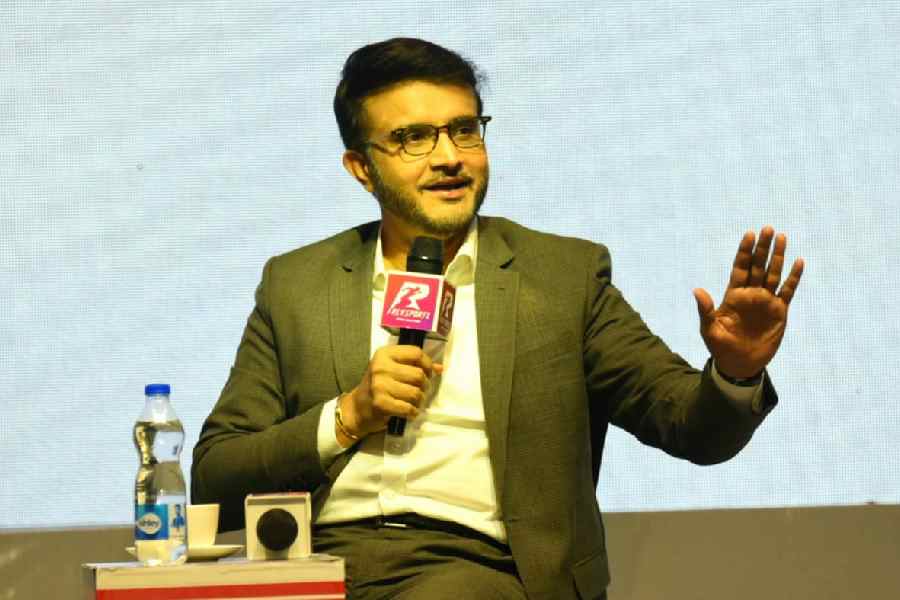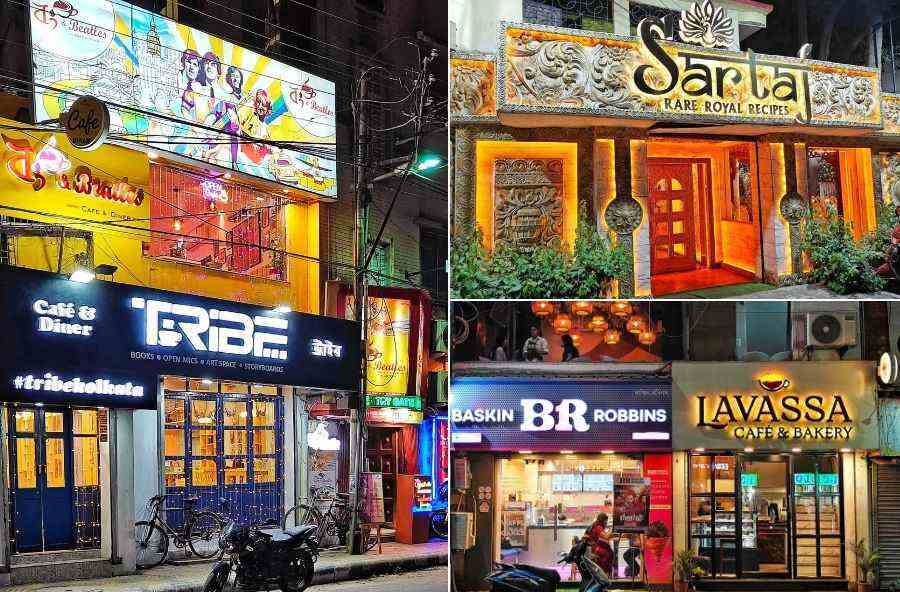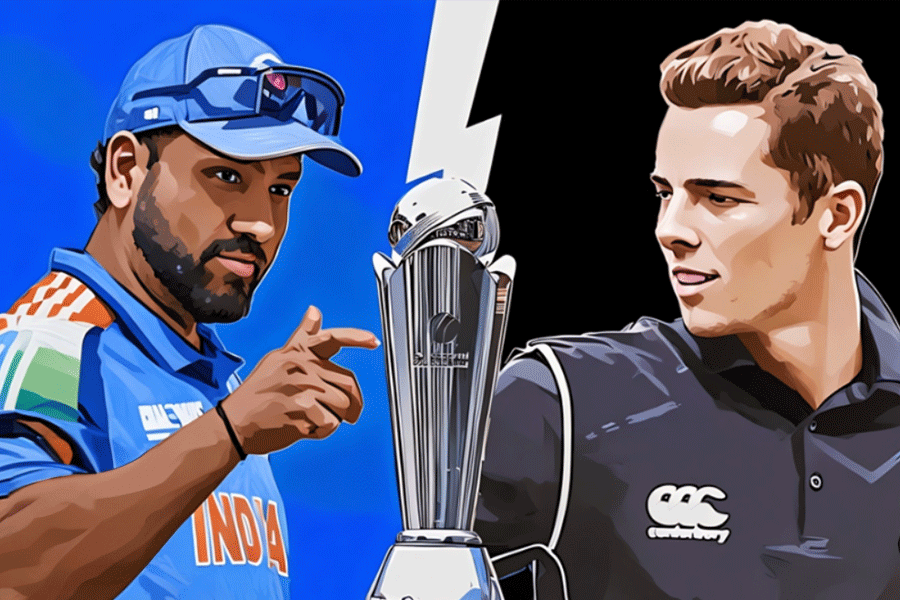 Sunday, 09 March 2025
Sunday, 09 March 2025
 Sunday, 09 March 2025
Sunday, 09 March 2025
The CPM, some might say, is like country music. The musicians are good, not so much the songs.
Their tunes did hold their sway over Bengal for 34 years.
The Left leaders who came to power in Bengal in 1967 – holding the hands of the Bangla Congress – were the successors of the undivided Communist Party of India, which would burn down trams in the early ’50s over a fare hike of one paise.
Land reforms – freeing up land from the clutches of those who owned large tracts – were high on the CPM’s agenda. This was pursued aggressively post-1977, when the Left Front came to power in Bengal on its own.
It helped the party spread its tunes across rural Bengal and turn into a leviathan. Over the years, the CPM ensured everyone in Bengal only heard and played the party’s songs. It perfected a playbook with Stalinist discipline.
From 1977 to 2011, the years that it was in power, the CPM oversaw the decline of Bengal, as evidenced by the declining share of the state in India’s GDP, as well as its own.
The failure to create jobs, the militant trade unionism that helped the CPM build a strong base became a millstone over the years as the party was exposed as anti-business in an India that was reaping the benefits of economic liberalisation post-1991.
The late Buddhadeb Bhattacharjee, who became chief minister in 2000, could sense what the others in the CPM refused to see – the unrest, disenchantment, disillusionment of generations of young people forced to leave Bengal to seek education and employment.
Bhattacharjee realised the need to change the CPM’s tunes.
He opened the doors of Alimuddin Street, the narrow lane in north-central Calcutta that houses the CPM state headquarters, to industry representatives in May 2001. This was something that had already become the established norm in state capitals elsewhere.
It was already late. By then, the CPM’s tunes had become overbearing.
In the late ’80s, in a not-so-tony south Calcutta locality, a family of tenants who had a dispute with the landlord found one morning the boundary wall and windows covered with human excrement. The culprit could only have been the all-powerful local committee of the CPM.
These local committee heads had turned into satraps over the years of Left rule. In this instance, the local committee had chosen to stand up for the landlord.
After the 1991 Assembly elections, a Congress leader was killed, the breasts of two women ripped and seven other people had their hands chopped for voting on the “hand” symbol of the Congress in Howrah's Amta.
A decade later, a Trinamul supporter in Hooghly’s Goghat was tied to a lamppost and a fish shoved down his throat.
The vice-chancellor of a state-run varsity was denied pension for over a decade on flimsy technicalities. He had refused to toe the party line. Even a knock on Raj Bhavan failed to help. Years later, a university clerk got the pension cleared in lieu of a hefty amount as deposit for a Ponzi scheme that the clerk was part of. The ex-vice-chancellor, who is now deceased, never got any returns from that scheme.
The CPM tried to cover up its failures. It replayed its tune of central government in Delhi being step-motherly.
When the agitations against land acquisition for industry in rural Singur and Nandigram erupted around 2006-2007, the CPM thought it would continue to get away. It had become deaf listening to its own tunes on repeat. The audience had grown tired.
In 2011, Mamata Banerjee, a leader long ridiculed as a hick by the ‘bhadralok’ – genteel – CPM, pulled out the plug of the CPM’s boombox in 2011 and ended the party’s 34-year rule, riding on the wave of discontent over Singur and Nandigram.
Cut to the present, and the CPM has neither a Member of Parliament from the state nor a Member in the Legislative Assembly.
Now, when Mamata’s Trinamul is put in the dock for the numerous acts of corruption and high-handedness, the CPM tries to make the right noises. But there is nobody to listen.
The ongoing protests against the rape and murder of a young trainee doctor at the state-run RG Kar Medical College and Hospital are a good example.
Even more recently, within hours of a woman journalist’s accusations of sexual harassment against Tanmoy Bhattacharya, one of the party’s former MLAs who is a prominent face on television debates, the CPM’s Bengal unit secretary Mohammad Salim announced the leader’s suspension and an internal investigation.
The zeal to appear righteous is not new.
Seven years ago, a three-member committee had found the party’s young face Ritabrata Banerjee, a favourite of the late former chief minister Buddhadeb Bhattacharjee and elected to the Rajya Sabha, “outright guilty” on four counts: continuous leak of internal party matters and discussions to the media; moral degeneration in relation to women; serious inconsistencies between income and expenditure; lavish lifestyle incompatible with a member of the party. He joined the Trinamul a year later.
Since the CPM was voted out of power 13 summers ago, the party’s efforts have been concentrated on “ghure darano” (turning around). And every step that it has tried to force the turn against the tide, the CPM has fallen flat on its face.
Even the most ardent supporter will agree that the party hardly stands a chance in the sole seat it is contesting in next week’s bypolls to six Assembly constituencies in Bengal.
CPM’S turnaround bid: Out with the old
With around 2.8 lakh members, the CPM polled 34,16,941 votes from Bengal in this year’s Lok Sabha polls, just 5.67 per cent of the votes. Its belligerent ideological fellow-travellers – the CPI, the Forward Bloc and the RSP – polled less than 0.25 per cent.
Exactly two decades ago, the CPM had 38.71 per cent of the vote share while its partners hovered around 4 per cent. Since then it has been a steady fall, though not for any lack of efforts from the CPM.
The party got rid of the old guard, like the octogenarian Biman Bose – the last of PDG boys, who remains the patriarch of a crumbling, dysfunctional family called the Left Front whose members bicker but cannot afford to leave the family home. Neither can the head of the table give them the marching orders.
The adage that communists don’t retire – like Jyoti Basu, Harkishen Singh Surjeet, Indrajeet Gupta, EMS Namboodiripad – was abandoned when the party fixed the age ceiling for the state and district level committees.
In March 2022, when the Bengal’s state level conference was held in Calcutta, the party elevated former MP and a prominent face from the minority community, Mohammad Salim, to head the state unit.
An entire generation of the CPM leaders under whom generations grew up in Calcutta and Bengal in the 34 years, like the late former chief minister Bhattacharjee, Asim Dasgupta, Mridul De, Surjya Kanta Mishra, Rabin Deb, Gautam Deb and others, were dropped from the state committee.
They were replaced by the so-called young leaders – some fresh out of universities and colleges were inducted. Some of them have also been fielded in the poll battles.
Yet the tide has not turned for the CPM. Maybe, the leaders do not realise the water has moved elsewhere.
Left-wing, by other names, elsewhere in the world
While the Marxists in Bengal faced a rout in this summer’s Lok Sabha polls, in France around the same time, the New Popular Front, a Left-wing coalition born just about a month before with members from socialists, communists, the so-called Greens and even a radical Left-wing party, won the elections.
This September, 55-year-old Anura Kumara Dissanayake, leader of the Janatha Vimukthi Peramuna (People’s Liberation Front) won the presidential polls in Sri Lanka leading a coalition, the National People’s Power. Dissanayake’s party in the island nation is a strong votary for Left-wing economic policies.
No communist leader across the wide Left spectrum in Bengal is willing to take the cue from France or Sri Lanka and go for a complete makeover with a new name.
So, should the CPM change its name?
“I don’t think the name is the problem at all. For 34 years they did well with the name. Why should they suddenly change it,” asked Left activist Kavita Krishnan.
“The CPM went down in a cloud of bad opinion for its betrayal of its own principles on the issues of farmers and doubled down from its own position on land-grab, which the Trinamul capitalised on. In the last decade or so, they have completely failed to understand the mood of the people of Bengal. Agey Ram, Porey Bam [Ram now, Left later, believed to be a line of reasoning for many Left supporters who think they should vote for the BJP to oust Trinamul and later they can magically bring back the Left] does not work,” she said.
Bengal CPM leader Kaustuv Chatterjee agreed with Krishnan on the name change, but differed on the BJP-Trinamul issue.
“We have lost the elections, our vote share has come down, all of it is true, but the issues that we speak for or against are still relevant. Across the world only the Left parties speak on people’s issues,” said Chatterjee.
“People of Bengal have started realising that the BJP and the Trinamul are not the alternative. People of Bengal voted for the BJP keeping faith in the central probe agencies. On corruption no action has been taken against any Trinamul leader. Anubrata Mondal is out on bail, and so will Partha Chatterjee in some more days. It is only the CPM which has been steadfast in opposing both. Losing an election does not mean our principles change.”
Cue from Britain for CPM?
Political analyst Subhamoy Maitra suggested the party could do well to introspect on this after the results of the upcoming bypolls in the six Assembly seats.
“Except for land reforms, the CPM has not been able to implement the communist ideas in other spheres,” Maitra said.
“On the other hand, being a communist party, their leaders are still forced to repeat some statements which are no longer relevant. People do not want to see their leaders as poor, living in shabby conditions. They don’t raise an eyebrow about the assets of a BJP, Trinamul or Congress leader, but a CPM leader’s wealth or lifestyle comes under the scanner because they themselves have created an image of themselves.”
The CPM could do well to remember that the parent party of the Communist Party of India and also the CPM's, the Communist Party of Great Britain, was formed 104 years ago with around 4,000 members. By 1991, when the Communist Party of Great Britain dissolved itself, there were only 6,300 members. The Communist Party of Britain, which calls itself the direct inheritor of the CPGB, had barely 1,308 members in December 2023.
Of the 14 seats that the CPB contested in the 2024 general elections, the party won 2,622 votes and zero seats.
When the CPB was formed in 1988, it said it was not a new party but the “party was being re-established on the basis of its rules and programme”.
Like the Indian Marxists of yore, Alimuddin Street too could take a look towards London, if not France and Sri Lanka.
The CPM needs to change its music. Not replay the old tunes, no matter how good the singers.







